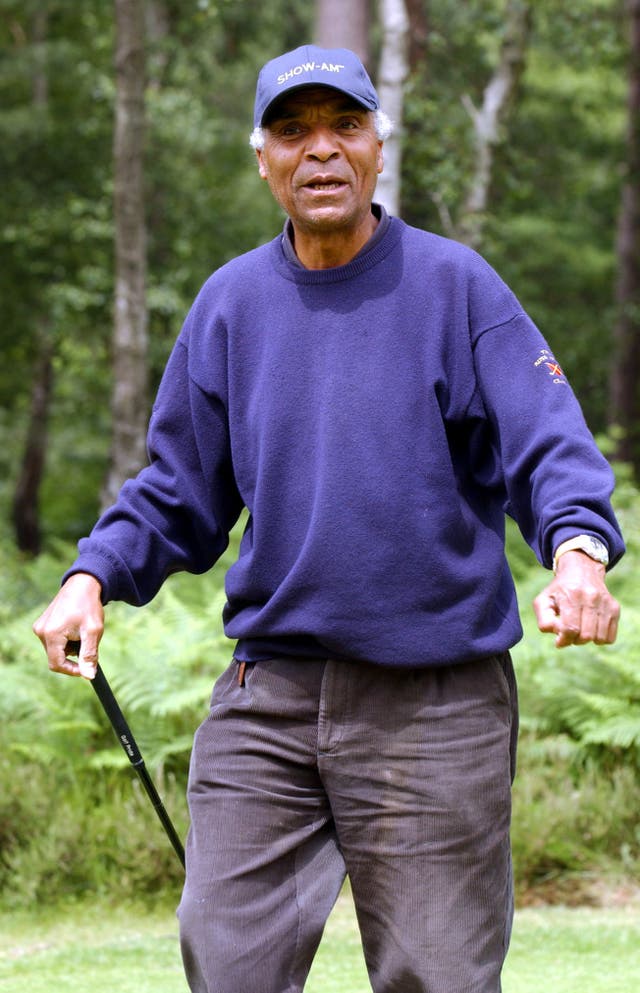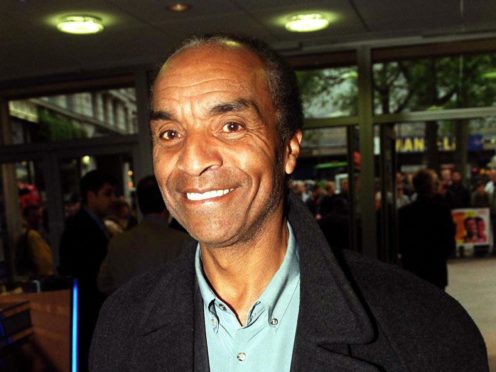Tributes have been paid to musician and entertainer Kenny Lynch, who has died at the age of 81.
The star, best known for his song Up On The Roof, died on Wednesday, his family said.
A statement shared on Lynch’s Twitter account said: “Saddened to share this news with you all. Sadly our dad passed away in the early hours this morning.
Saddened to share this news with you all. Sadly our dad passed away in the early hours this morning. He will be remembered & missed by many. We would like to say a massive thank you to the NHS & the people at Sue Ryder for all their support. Bye Dad, we will love you always! 💕 pic.twitter.com/aSeXbXuAqG
— Kenny Lynch (@KennyLynchieOBE) December 18, 2019
“He will be remembered & missed by many. We would like to say a massive thank you to the NHS & the people at Sue Ryder for all their support. Bye Dad, we will love you always!”
Radio presenter Danny Baker was among those leading the tributes to Lynch, tweeting that he was a “huge talent, a pioneer and tremendous company”.
He added: “One of the key witnesses to the 20th UK music/entertainment scene he had a million stories. Yet one of the cagiest interviewees when on air.
Kenny Lynch has died. Huge talent, a pioneer and tremendous company. One of the key witnesses to the 20th UK music/entertainment scene he had a million stories. Yet one of the cagiest interviewees when on air. Wasn't interested in his 'place' in pop culture. He was there. pic.twitter.com/yiw39RQq16
— Danny Baker (@prodnose) December 18, 2019
“Wasn’t interested in his ‘place’ in pop culture. He was there.”
Sports broadcaster Gary Lineker tweeted: “Really sorry to hear that Kenny Lynch has passed away. Such a delightful, funny, talented man. Played golf with him on many occasions and he was simply the best company … when he wasn’t late. #ripkenny.”
Singer Boy George tweeted: “God Bless Kenny Lynch. R.I.P. My love and condolences to his family and friends. Absolutely huge part of my 70s life and on.”
London-born Lynch had a string of hits in the 1960s including Up On The Roof and You Can Never Stop Loving Me, both of which charted in the top 10.
Really sorry to hear that Kenny Lynch has passed away. Such a delightful, funny, talented man. Played golf with him on many occasions and he was simply the best company…..when he wasn’t late. #ripkenny
— Gary Lineker (@GaryLineker) December 18, 2019
Of Caribbean and Irish heritage, he was one of the few black singers in British pop music at the time.
In 1963 he appeared alongside The Beatles on their first British tour when both acts were on the bill for a string of dates headed by singer Helen Shapiro.
In the same year, Lynch became the first artist to cover a song by the Fab Four when he re-recorded Misery from their debut album, Please Please Me.
On the big screen he appeared in Carry On Loving in 1970, as well as films including British comedies The Plank and The Alf Garnett Saga, and on TV he starred in the short-lived sitcom Curry And Chips alongside Spike Milligan.
A variety star, Lynch also had success as a comedian, touring with long-time friend and collaborator Jimmy Tarbuck over the years.
In a video interview with 1,000 Londoners, posted in November 2018, Lynch spoke frankly about his family and early childhood, talking about his early experiences of the Second World War.

He said: “The war started about 18 months after I was born and, for kids, I mean when you go to about three or four, it was bombs dropping all the time, it was fun. We used to say ‘Look, there’s another house on fire.’
“But, obviously, during the war everybody’s very close together and all that. It’s only the day after the war stops that they all start fighting again, like they do now.
“My father was here because he was in the Merchant Navy. My dad came over from Barbados in the late 1890s.
“He is a very nice man, he made me what I was, he was very gentle. Never had a row with me, never hit me, never did anything like that, and I loved him. And my mum’s from an Irish background and all that.
“My family was 11 kids but, I mean I never met half of them, I mean I was the last one of them. And in fact now I’m the only one left out of all of them because they’re all brown bread now.”
Lynch said he had a “very fun family” with “no rows”, and that they “never had racial problems with people in Cornwall Street, because basically we were probably a novelty”.
“People would probably say ‘Oh, we’ve got some black people living next door to us; you should come around and see them – they’re almost the same as us.’”
